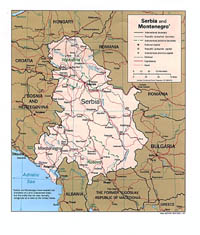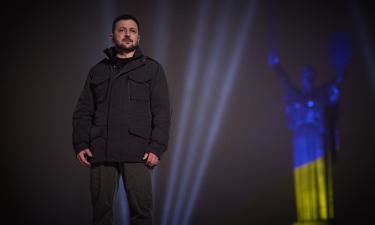Serbian president calls for new EU-membership talks
President Boris Tadic met with European Commission President Jose Manuel Barroso a day after Prime Minister Vojislav Kostunica briefed EU leaders on the details of a new plan to track down and arrest fugitive war crimes suspect Gen. Ratko Mladic.

Serbia's failure to arrest Mladic - wanted on charges stemming from the 1992-95 war in Bosnia - and hand him to the U.N. tribunal in The Hague, Netherlands, led the EU to suspend talks on a so-called Stabilization and Association agreement, a stepping stone to possible membership in the bloc.
Although no details of the new three-page document were released, officials said it details measures to apprehend Mladic, who is wanted on charges of involvement in genocide during the 1992-95 Bosnian war. It also calls for the appointment of a government coordinator to put the plan into effect, who would be in daily contact with U.N. prosecutors.
The plan is closely modeled on a similar document presented by neighboring Croatia last year, when Zagreb's talks with the EU were jeopardized by its failure to catch an army general indicted for crimes against humanity, according to the Ap.
Finland's Foreign Minister Erkki Tuomoija, whose country now holds the EU's rotating presidency, welcomed Serbia's plan but stopped short of endorsing a resumption of pre-membership talks saying some details needed to be worked out.
But Tuomoija refrained making any commitment to resume talks before Mladic is delivered to The Hague.
Belgrade is hoping the bloc will accept its assurances and restart negotiations even if Mladic remains at large, just as it did in Croatia's case.
Both EU and Serbian government officials have warned that Serbia's continued isolation could build public support a far-right party opposed to cooperation with the EU win next year's general elections.
An agreement on association with the EU is seen as a way of kick-starting economic reforms and avoiding defeat in the upcoming ballot.
Subscribe to Pravda.Ru Telegram channel, Facebook, RSS!





